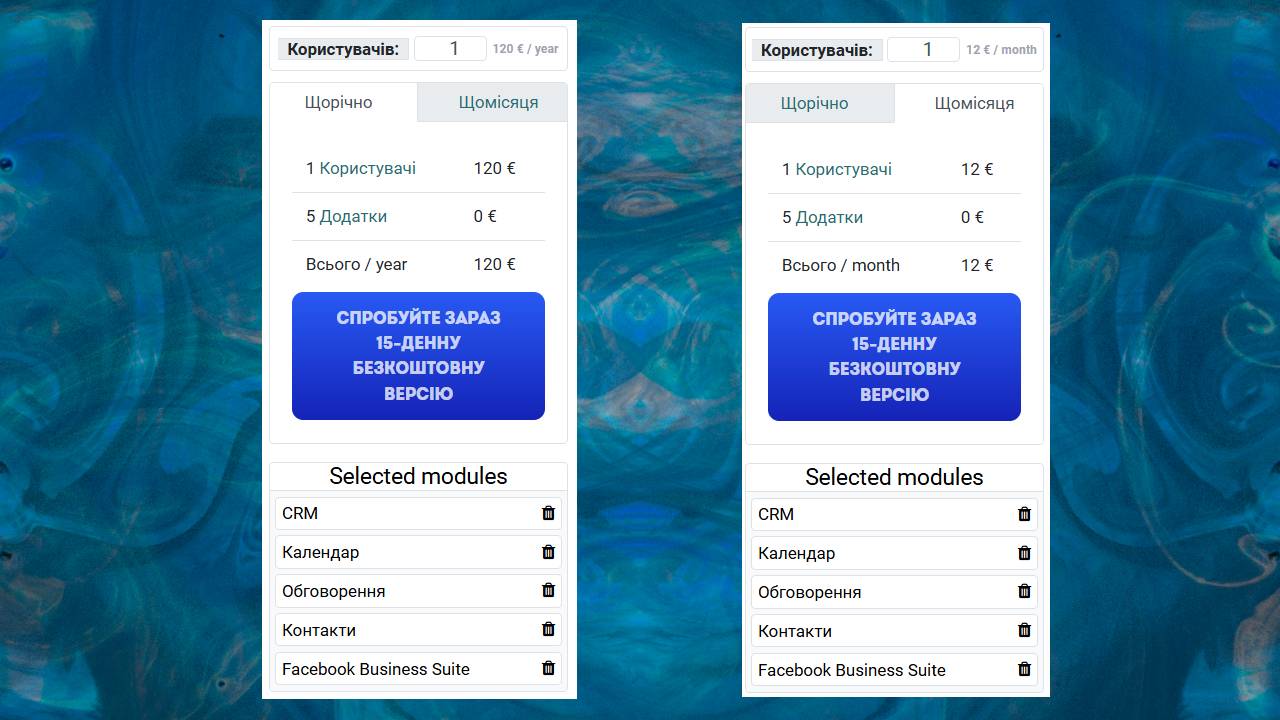↑
CRM Implementation Costs: Key Points to Consider
A CRM system (Customer Relationship Management) is a tool that allows businesses to interact more efficiently with customers, improve service quality, and increase revenue. As the importance of automation and personalization grows, interest in CRM continues to rise. Many companies that have not yet implemented a system often wonder about the costs involved, what services are included, and how to choose the best option. Let’s explore what should be considered when budgeting for CRM implementation, as prices can vary based on different factors.
How Much Does a CRM Cost?
When evaluating CRM costs, it’s important to remember that expenses depend not only on the system itself but also on the services you order. For example, LBS Cloud offers a full range of services, from consulting, configuration, and implementation to integration, technical support, and migration from another CRM to their platform.
LBS Cloud provides a flexible pricing model, with the option to choose monthly or yearly payments and to adjust the number of users based on business needs. The base cost is €120 per user per year (equivalent to €10 per month), with each additional user adding €120 to the annual fee. If you choose a monthly payment plan, the cost is €12 per user, which can be convenient for temporary teams or short-term projects.
However, with an annual payment, the monthly cost is lower, saving up to 20% over the long term. This is especially beneficial for those planning to use the platform continuously, as an annual subscription helps avoid monthly overpayments and allows budget planning for the year ahead. Additionally, LBS Cloud offers a 15-day free trial, so clients can evaluate the system and its advantages.
Explore CRM features and pricing
Furthermore, LBS Cloud is a Ukrainian CRM system that offers free integration with over 50 popular platforms, including Rozetka, Prom, Nova Poshta, MonoBank, Telegram, Facebook, and others, significantly reducing startup costs. This provides clients with the convenience of customizing the CRM to fit seamlessly into existing workflows.

Main Factors Affecting CRM Implementation Costs
When choosing a CRM, it's crucial to consider not only the initial implementation price but also additional services and resources needed for proper integration, such as:
Consulting and Business Process Audit
Before implementation, conducting a detailed analysis of current processes is essential. This helps tailor optimal configurations. While such services may add to the cost, they significantly improve system efficiency.Configuration and Customization
Most CRMs come with basic functionality, but configuring the system for a business’s unique needs requires extra resources. This includes creating custom templates, fields, and report settings, which can increase overall expenses.Employee Training
Effective CRM use is only possible when employees know how to operate it. Conducting training and educational programs may require significant investment but greatly enhances system utilization.Integration with Other Tools
Most CRMs need integration with other software, such as accounting platforms or customer communication tools. This also applies to ERP (Enterprise Resource Planning) systems, with costs depending on the need for specific configurations or additional connections.Support and Technical Maintenance
Ongoing support and maintenance help prevent disruptions and ensure smooth CRM operation, but they can increase total service costs.
How Much Does CRM Implementation Cost?
The cost of implementing a CRM system consists of several components. Key expenses include user fees, configuration, training, and technical support. Average CRM prices can vary depending on business process complexity and the scope of services provided.
LBS Cloud allows clients to select the number of users, helping manage the budget effectively since clients pay only for the resources used. This CRM is especially advantageous for small and medium-sized businesses that can gradually scale it as their business grows.
Is It Worth Investing in a CRM?
Implementing a CRM is a strategic investment that helps improve customer interaction and increase profits. The system tracks every stage of customer interaction, automates routine processes, and enhances team communication.
Another advantage is the ability to analyze the customer base and forecast sales, enabling effective planning and higher service levels. Investing in CRM in Ukraine is beneficial for businesses looking to automate workflows, improve analytics, and build long-term customer relationships.
Conclusion
Adopting a CRM is a step toward building an efficient, structured business with high-quality customer service. The cost depends on various factors: the number of users, configuration, integration, training, and technical maintenance. LBS Cloud offers a convenient and transparent pricing model based on user count, helping businesses avoid unnecessary expenses while receiving a system tailored to their needs. Such an investment will help optimize workflows, ensure high service quality, and increase profitability for your company.